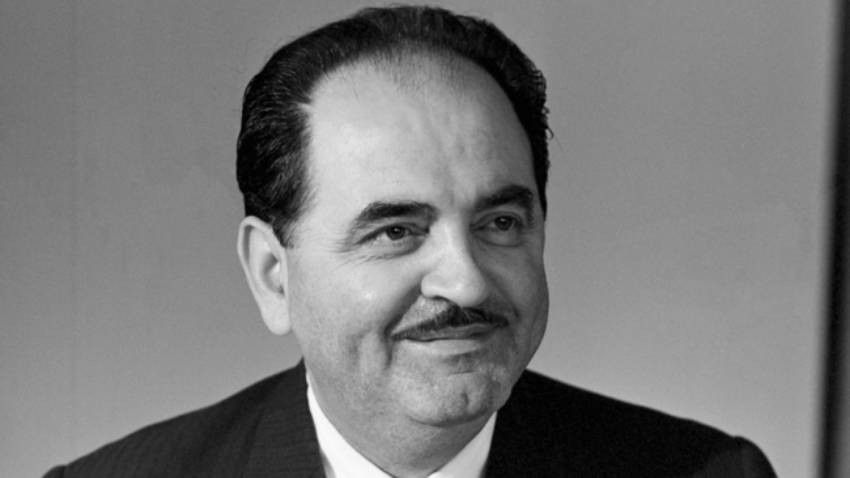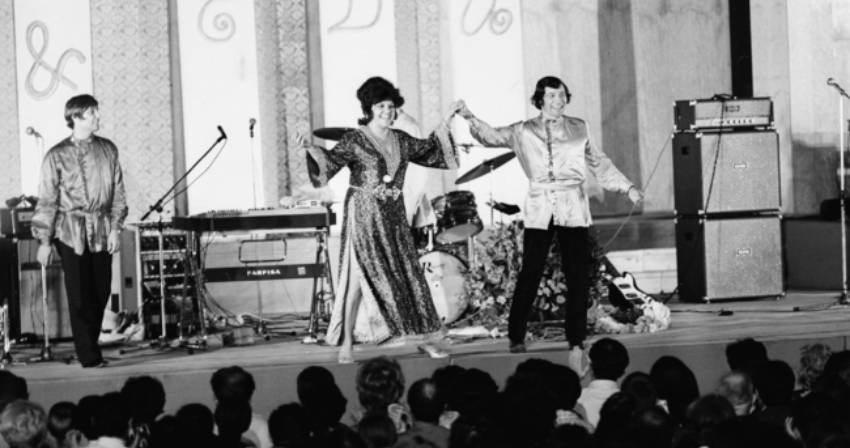In the early 1970s, Bulgaria began singing three songs that are still beloved today. In 1970, ''A Bulgarian Rose'' by composer Dimitar Valchev, in the inimitable interpretation of Pasha Hristova, was awarded first prize at the international pop music festival “The Golden Orpheus”. Again in 1970, Emil Dimitrov recorded his own music hit “My Country, My Bulgaria”. Shortly afterward came “Our Dear, Native Land”, known by the opening words of poet Ivan Genov’s lyrics: ''Traveler dear, traveler young''. In recent decades, the name of its composer—Dimitar Petkov (1919–1997)—has been almost forgotten.


However, Dimitar Petkov is also the author of many beautiful children's choral songs and miniatures, most of which are based on poems by famous Bulgarian and foreign poets. His only popular music hit took a complicated path. The original version of ''Traveler Dear'' was written for a children's choir, with lyrics that were clearly in line with the ideological demands of the regime at the time. Today's young people would hardly grasp the hypocrisy in the message to a "young traveler, setting off to see the bright world". But between 1944 and 1989, most Bulgarians found it very difficult to fulfill such a natural desire. Traveling abroad was reserved for the select few; it required approval from officials and party secretaries and often happened through connections or bribes.
The version of “Our Dear, Native Land” for children's choir was well received by the public and Dimitar Petkov decided to turn it into a popular hit by entrusting it to… Lea Ivanova! According to the composer, her voice would keep the lyrics from sounding like propaganda. This choice reflected refined taste and remarkable professionalism—but Lea, the incredible “prima of swing”, was far from suitable in the eyes of the authorities. Monitored by State Security since the late 1940s for performing “decadent music”, Lea Ivanova was even sent to a labor camp in the village of Nozharevo, where she spent eight months, accused of corrupting society. She was released on March 15, 1950, on the condition that she cooperate with State Security. Lea managed to fight for her right to sing and travel. Valko Chervenkov and Anton Yugov became her patrons. From the early 1960s onward, she frequently performed in Germany, where she had many loyal fans.
In 1972, Lea Ivanova recorded Dimitar Petkov’s song on vinyl. Her performance was included in the documentary film "Lea Sings and Laughs", directed by Grisha Ostrovski. However, the authorities "seized" the film reel, and it was not broadcast on the Bulgarian National Television (BNT) until 2000.
Lea Ivanova’s biographical book "I Should Have Two Lives" includes the sheet music for "Our Dear, Native Land", with a personal dedication by composer Dimitar Petkov.
After Lea’s recording was banned, Dimitar Petkov did not give up. He decided to entrust the song (in a new arrangement by Nayden Andreev) to the young performer Ani Pavlova. In early 1973, the Bulgarian National Television (BNT) named "Our Dear, Native Land" Melody of the Year—one of the rare cases in the history of the ranking when the opinions of the professional jury and the audience fully coincided. The patriotic hit brought the then-unknown Ani Pavlova not only nationwide popularity and affection, but also the honorary title of “Merited Artist”—a distinction that musicians like Emil Dimitrov, Yordanka Hristova and Lili Ivanova had waited years to receive. The song became an unofficial national anthem thanks to Ani Pavlova’s beautiful and gentle voice.
The audience can choose between her performance and that of Lea Ivanova. My personal preference is for the gentle, charming Ani!Published and translated by Kostadin Atanasov
Photos: BTA - archive, pixabayOften described as “the Bulgarian Verdi” or “the Bulgarian Puccini,” composer Parashkev Hadjiev (1912–1992) has long been recognised as a central figure in Bulgaria’s operatic tradition. The country’s most prolific creator of musical-stage works, he left..
Admirers of schlager music and expressive stage presence are certainly looking forward to the pre-Christmas meeting with Veselin Marinov. It has already been a long-standing tradition for the singer to have a concert in the National..
Photos: ubc-bg.com, архив, Facebook/ Filmotechno podcast Discover more Bulgarian music in Radio Bulgaria's series "Highlights of Bulgarian musical culture": Highlights of Bulgarian musical culture: ''Barefoot times'' -..

+359 2 9336 661
